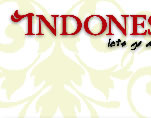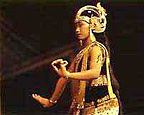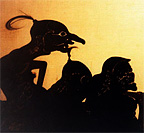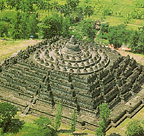










|
|
|||
|
History has left its footprints everywhere in Central Java, an area rich in a culture and tradition cumulated from a powerful Hindu and Buddhist past and more recent Islamic influences. Under the Saliendra and Old Mataram kings, the Hindu Javanese culture flourished between the 8th and 10th centuries and it was during this pinnacle of power that Java's most remarkable religious monuments were built; Borobudur, the biggest and most magnificent monument to Mahayana Buddhism in the world; the enormous Hindu Temple complex of Prambanan, dedicated to Shiva and built by the rulers of the Sanjaya Dynasty, and the ancient site of the oldest Hindu temples in Java on the magnificent, etherial heights of the Dieng Plateau; all of these and more are testimony to the ancient power and influence of the region. The first Islamic kingdom in Java was born in 1511 in Demak, about 40 km from the Provincial capital of Semarang on the North coast. One of the province's greatest Islamic structures is, in fact, the Grand Mosque of Demak, which is said to have been built in a single night by one of the nine early leaders of Islam in Java. Symbolic of the way the new faith was introduced, the mosque displays a curious combination of Islamic and Hindu architectural influences and is still revered and WOh shipped by Javanese pilgrims. The
rich and fertile plains of the region support an enormous population
of over 30 million people with age-old traditions and a rich culture.
There are an abundance of interesting places to visit and an extensive
network of good roads and railway links to major cities and villages,
as well as airports in Semarang and Yogyakarta, making it one of
the most accessible provinces in the country. Two major seaports are also to be noted, providing national and international outlets for the province's agricultural and industrial products; Tanjung Emas on the northern coast on the Java Sea, and Cilacap, a natural ocean port in the Indian Ocean, in the southern part of the province.
|
|||
|
 |
 |
 |
 |
